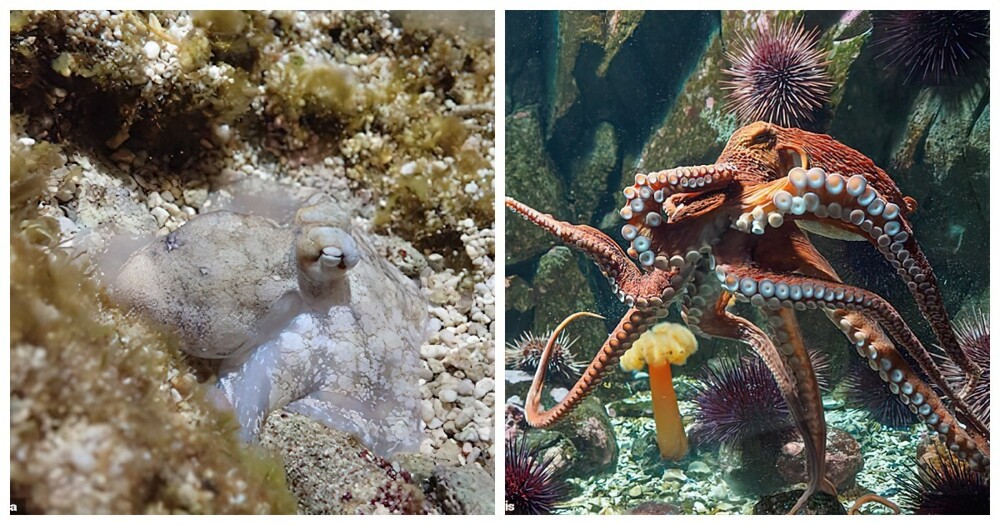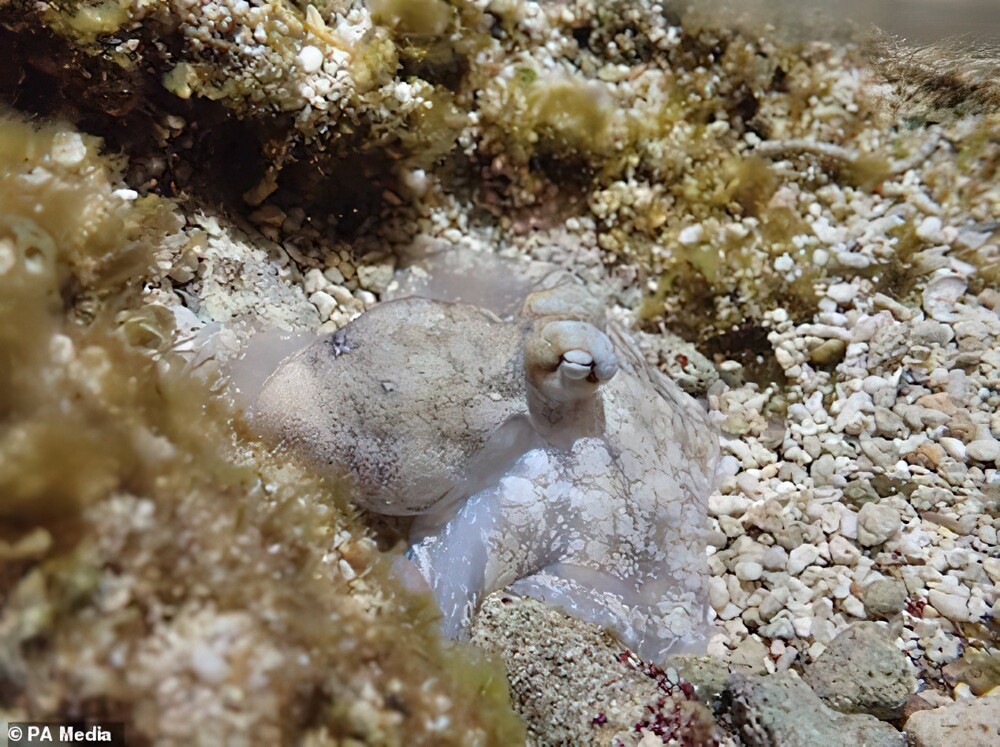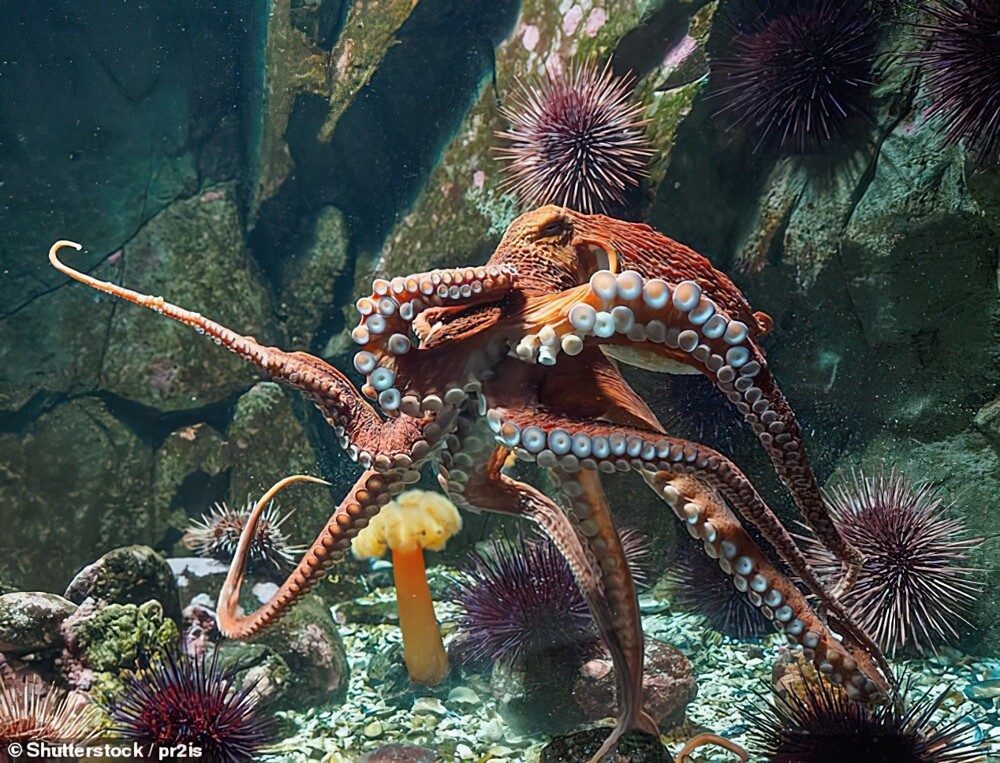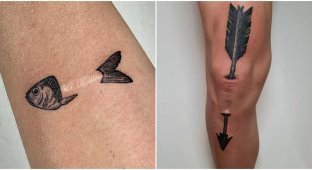Scientists believe that octopuses are able to dream (3 photos + 2 videos)
Octopuses change color not only during wakefulness, but also in a dream, creating various camouflage patterns on the skin. New research shows that these patterns change with a certain cyclicity. According to experts, this suggests that octopuses capable of something like dreams. 
Octopuses, like humans, have two stages of sleep. - calm and active (it resembles a dream with quick movements eyes in mammals).
While awake, octopuses create a number of different patterns on their skin, which they usually use for camouflage, in order to warning, protection from a predator, or communication with each other.
The study showed that during the phase of active sleep, there is a cyclical repetition of certain skin patterns.
According to one theory, octopuses practice the skill disguises even in sleep, or simply supported in this way the pigment cells responsible for this.
But there is another suggestion: they can relive and learn from your waking experiences, such as hunting or hiding from predator, and reactivate the skin pattern associated with each experience. In other words, they may experience something like a dream.
Study lead author Sam Reiter, head of the department Computational Neuroethology Okinawa Institute of Science and Technology (OIST), Japan, said the following:
Octopus skin pattern serves as a visual indicator their brain activity during sleep. All animals seem to be in one way or another degrees sleep, even such simple animals as jellyfish and fruit flies. But for a long time it was believed that only vertebrates cyclically switch between two different stages of sleep. 
When octopuses sleep, their quiet naps interspersed with short bursts of frantic activity. Their tentacles and eyes twitch, breathing quickens, and skin flares up in bright colors.
Researchers from OIST and the University of Washington studied brain activity and skin structure in octopuses (Octopus laqueus) during this active sleep period. They found that the studied parameters are very resemble the activity of the brain and the behavior of the skin in the waking state.
Waking-like activity also occurs during REM sleep in mammals is the phase in which most dreams. 
Scientists started by testing whether octopuses are really slept during this active period. They tested how octopuses react to physical stimulus, and found that both in calm and in the active stage of sleep, the animals required stronger stimulation, before reacting, compared to when they were awake. If octopuses were prevented from falling asleep or disturbed during the active phase of sleep, later they fell into active sleep earlier and more often.
About once an hour, the octopuses entered the active phase of sleep. for about a minute. At this stage, their brain activity is very strong. resembled the activity of their brains in the waking state, in the same way like people in REM sleep. This compensatory behavior is active stage as an important stage of sleep necessary for normal the functioning of octopuses, scientists say.
The results of the study are published in the journal Nature.






















